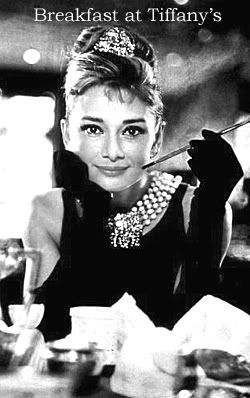The Politics Of New OrleansMost of the chatter I've heard and blogs I've read since Ray Nagin's re-election as mayor of New Orleans have taken a racial tone. Nagin only defeated Mitch Landrieu because Nagin's black and Landrieu's white -- or so goes the prevailing sentiment.
But these people do not understand the city's political history. Back in April, right after the primary, BaT laid out each side's strategy -- and it basically played out
as suggested:
Each camp's strategy appears to be clear. Landrieu will bang the drum of new leadership. Nagin will say Landrieu isn't new leadership. In fact, he's just part of the old guard that Nagin displaced. This old guard includes Landrieu's father and the Morial family who counts among it two former mayors: Dutch and Dutch's son Marc.And, in the same post, BaT came as close to a prediction as we'll do here:
In the end, the money may stay home. And so may a lot of conservative voters (re: mostly white in New Orleans). They feel betrayed by Nagin, who inexplicably played the race card to an audience who had never been very fond of him. And the conservatives -- and some moderates -- do not trust anyone in the Landrieu dynasty.The result could be four more years of Ray Nagin. Good, bad or otherwise.In the end, Landrieu received about 20 percent of the black vote, and Nagin received about 20 percent of the white vote. Nagin benefitted from a larger black turnout and a considerable gain in white support:
Political observers had speculated that to win a second four-year term, Nagin would have to quadruple his dismal 6 percent showing among white voters in the primary and broaden his reach beyond the almost 70 percent of African-American votes he earned in the April 22 contest.It appears the mayor executed that strategy in textbook fashion to earn 52 percent of Saturday's vote, compared with 48 percent for Landrieu, whose challenge was to broaden his base of white voters and hang on to the 24 percent of black voters' support he earned last month.For Nagin's white support to go from 6 percent to 20 percent, this means that many of the people who voted for either Ron Forman (the business bloc choice who later endorsed his friend Landrieu) or Rob Couhig (the only Republican in the race -- and who endorsed Nagin) chose Nagin -- even though Landrieu took the Forman-Couhig precients.
Had the mayor not gained white support, even with a stronger black turnout, Landrieu most likely would have won. It says a lot about how people feel about the Landrieus nowadays in New Orleans that they would rather choose Nagin -- who showed a serious lack of leadership in the days leading up to and immediately after Katrina -- over the favored son.
Despite my distaste for Nagin's Katrina response and his "God is punishing us" and "Chocolate City" remarks, I can't say I wouldn't have made the same decision. At least at the rebuilding of the city continues, I have confidence Nagin will maintain his history of honest government. I couldn't say that about Mitch Landrieu and the gang with which he surrounded himself.
---
Did They Or Didn't They?Matt Drudge
reported earlier today that Howard Dean and the Democratic National Committee actually worked against Nagin -- who, like Landrieu, is a Democrat. (Although Nagin was a Republican before deciding to run for mayor.)
The DNC denies the report, and Drudge
has since, er, I wouldn't call it "
retracted," the story:
The DRUDGE REPORT takes chairman Dean and his spokesman at their word. ---
Now That's Cold, Hard CashU.S. Rep. Bill Jefferson of New Orleans -- who even
liberal watchdog groups call one of the most corrupt members of Congress -- is going down.
When they get you on tape negotiating your bribes and joking that the FBI might be listening, you'd have a hard time getting off even in a New Orleans courtroom. But when they find $90,000
cash in your freezer, well, Mr. Bill, welcome to Club Fed:
Unknown to Jefferson, Mody also had been working with the FBI, which videotaped the transaction from several vantage points. Four days later, agents would raid Jefferson's home on Capitol Hill and recover $90,000 in a freezer, where stacks of $100 bills were wrapped in aluminum foil and stored in frozen-food containers.That colorful -- and potentially damning -- tableau came to light Sunday in an affidavit released by the FBI. Agents had used the affidavit to persuade a federal judge to let them search Jefferson's congressional office a day earlier.Now, I'm convinced I was right about what Jefferson
was really after when he had the National Guard escort him back to his house when people were dying.
